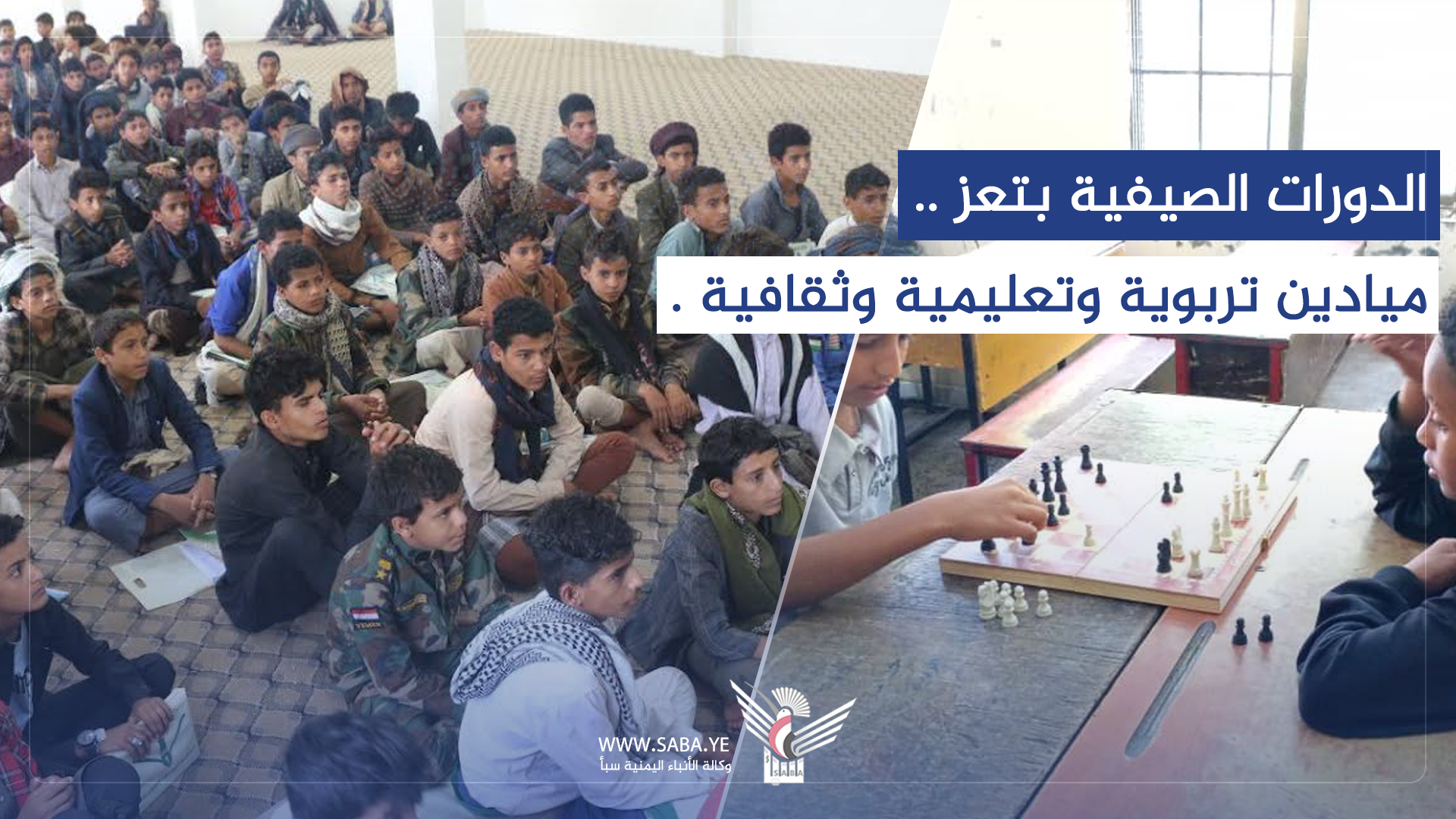Taiz - Saba:
The summer courses in the districts of Taiz governorate for the year 1446 AH received wide attention from the revolutionary leadership, the Supreme Political Council, the Government of Change and Development, and the local authorities in the governorate. This support aimed to enhance their role in deepening Quranic culture and faith-based identity among youth and students, while developing their skills in various fields.
The significance of these courses lies in their vital role in teaching new generations the memorization and sciences of the Holy Quran, and in protecting them from distorted cultures and destructive ideas that enemies seek to instill through soft warfare.
Activities in the summer courses and schools across the governorate varied, including academic, cultural, social, physical, sports, and recreational programs. These contributed to enhancing students’ awareness, refining their skills, and developing their creative talents, through a specialized educational and training team that ensured a unique and beneficial learning experience.
The wide engagement from all social and official segments reflected a shared commitment to protecting youth and building their knowledge and skills, fostering divine guidance within them through recitation and memorization of the Quran, for success in both this life and the hereafter.
In this context, the acting governor and head of the Subcommittee for Summer Activities in the governorate, Ahmad Al-Masawi, emphasized the importance of these courses as the first line of defense for youth, shielding them from intellectual invasion. He viewed the summer courses as a vital step toward building a generation enlightened by Quranic values, sciences, and guidance.
He stressed the need to protect students from soft warfare and misguided cultures, enhancing their relationship with God, nurturing their knowledge and skills, and strengthening their Quranic culture and faith identity.
He added that young minds do not rest during school vacations, and must be nourished with either pure or polluted sources, urging collective responsibility to protect children from becoming easy prey to destructive ideas.
Al-Masawi pointed out the distinctive variety of activities in summer schools, especially religious, academic, cultural, awareness-based, and athletic programs, which provide useful knowledge and practical skills. He praised the positive turnout this year, crediting parents’ awareness of the importance of enrolling their children to benefit from the programs during summer break.
He appreciated the efforts of teachers, volunteers, and the participation of students and parents, which significantly contributed to the success of the courses and achievement of their goals.
Meanwhile, the deputy head of the subcommittee and head of mobilization in the governorate, Muhammad Al-Khalidi, highlighted the importance of these courses in protecting the new generation from distorted ideologies amid the rise of digital platforms.
He noted that the summer programs help enlighten youth and strengthen their bond with God’s guidance and the Holy Book, which is the firm rope of God and the secure fortress for those who carry its message.
Al-Khalidi emphasized that summer courses are not limited to cultural and religious enrichment, but also include educational, athletic, and social activities, along with knowledge and skills development, and the discovery and nurturing of students’ talents.
He considered the enemies’ discomfort with these programs as evidence of their importance in building an aware generation capable of confronting conspiracies that target their values and identity. He affirmed that the practical response to this irritation is to ensure the continuity and success of summer courses.
He expressed appreciation for the dedicated teams in the summer schools, calling them the cornerstone of the program’s success, providing students with useful knowledge and preparing them to assume responsibility.
For his part, the director of the Subcommittee for Activities and Summer Courses in the governorate, Muhammad Al-Abadi, stated that Taiz is witnessing a dynamic student movement this year, with 759 summer schools accommodating 72,605 students. Among these are three residential centers in Al-Ta’izia, Maqbanah, and Khadeer districts, and 80 model schools.
He pointed to the diversity of activities at the school level and expressed hope that all relevant parties would continue supporting the courses, especially amid the high level of public engagement, in a way that allows the completion of planned curricula.
Ultimately, summer courses remain a safe haven for students of all educational levels, providing them with knowledge and skills and academically preparing them across various fields — most notably in Quran memorization, Quranic culture, and reinforcing their faith identity.
E.

| more of (Reports) |




